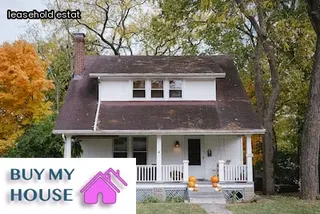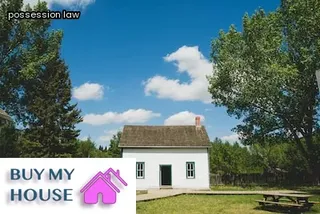Squatting is a term used to describe the act of occupying an abandoned or unoccupied space without the legal right to do so. In New Jersey, squatting is considered a form of trespassing and is illegal in most cases.
Depending on the circumstances, squatters can be charged with violating either civil or criminal laws. Generally speaking, if someone has taken up residence in an abandoned home without permission from the owner and refuses to leave, they can be found guilty of criminal trespass.
On the other hand, if they are simply using a property for recreational reasons without permission from the owner, they may only face civil penalties such as fines or eviction orders. It is important to note that in some cases, squatters may not be held liable for their actions if they have been living in a space for an extended period of time and have put forth reasonable efforts to pay rent or otherwise comply with landlord-tenant agreements.
Ultimately, it is essential that both homeowners and communities understand their rights when it comes to dealing with squatters in New Jersey.

In New Jersey, adverse possession laws are the legal basis of squatting rights. These laws allow a person to gain legal title to real estate if they possess and occupy it for a certain period of time without permission from the true owner.
This can be problematic for homeowners in the Garden State as squatters can take advantage of these laws to establish their own rights to property and essentially force an owner out. The long-term effects of this kind of occupation on communities can be devastating, leading to decreased property values and potentially leaving people homeless as they struggle to reclaim their homes or land.
It's crucial that homeowners familiarize themselves with state laws regarding adverse possession, so they can understand their rights and protect themselves from those who may wish to use them for their own gain.
In New Jersey, a Color of Title claim is the legal term used to describe when a homeowner has been in possession of a certain piece of property for a period of time, but does not have official documentation or title to prove it. This type of situation occurs if someone else holds the deed to the property or if there is an adverse possession claim from another individual, such as a squatter.
In cases like this, the homeowner can file what’s known as a Quiet Title Action and make a Color of Title claim in an effort to protect their rights and the deed to their home. To successfully make this type of claim, homeowners must be able to provide evidence that they have had control over the land for an extended period of time via things like tax records, utility bills, and other documents that show they have paid taxes on the property consistently.
Although Color of Title claims are more complicated than traditional adverse possession claims due to their stringent requirements, they can be beneficial in protecting both homeowners and communities from unwanted squatters who may take advantage of loopholes in the system.

The issue of squatting has become increasingly common in New Jersey, putting homeowners and communities at risk. The rights of squatters can be difficult to uncover, adding to the confusion and stress faced by those affected.
In order to minimize these risks, it is important to understand the legalities surrounding squatting in New Jersey. Squatters have a right to remain on a property until they are formally evicted, meaning that homeowners must go through a proper eviction process in order to remove them from the premises.
This process can be lengthy and costly, so it is recommended that homeowners take preemptive measures such as securing locks on any vacant properties or posting “No Trespassing” signs on their land. Additionally, if squatters are living on someone else's property without permission, it is possible for the homeowner or community to prosecute them for criminal trespass.
It is also important for homeowners to familiarize themselves with state laws regarding tenant rights, as this could provide an avenue for legally evicting squatters from a property. By understanding these legalities and taking the necessary steps to protect themselves and their communities, homeowners can significantly reduce their risks when dealing with squatting issues in New Jersey.
Finding affordable insurance coverage in New Jersey may be a difficult task for some homeowners, especially those who are facing threats from squatters.
Squatters can be a major inconvenience and financial burden for property owners, but understanding the legal rights of both parties can help protect homeowners and their communities from potential harm.
Knowing where to find reliable and affordable insurance coverage is an important step in mitigating risk for anyone living in New Jersey, as it can provide protection against squatters or other unforeseen circumstances that may arise.
With the right policy in place, homeowners can rest assured knowing they have the necessary protection to keep their home safe and secure.

Common plant species that are known to be invasive in Virginia can cause great damage to both homeowners and communities. These plants can spread rapidly, taking over native vegetation and choking out the biodiversity.
They can also cause serious economic impact, as they can reduce crop yields and cause costly damage to infrastructure. Some of the most common invasive species in Virginia include Purple Loosestrife, Japanese Honeysuckle, and Chinese Privet.
Controlling these plants is essential to protecting local ecosystems, as well as safeguarding the rights of squatters in New Jersey who depend on them for their livelihoods. Prevention strategies such as hand-pulling young plants before they take root or using herbicides to control established populations are effective ways of stopping the spread of invasive species before it becomes a major problem.
In Marion County, New Jersey, property taxation rules are in place to protect both homeowners and communities. The taxes are based on the estimated market value of the property, which is determined by comparing it to similar properties that have been recently sold or appraised.
In addition, any improvements made to the property, such as additions or renovations, may be considered when determining its taxable value. Squatters may also be subject to taxation if they take up residence on a piece of land without the owner's permission.
In this case, the tax assessor must determine whether the person has acquired rights over time and is entitled to some measure of protection from eviction or displacement. It is important for local governments to know and enforce their own tax laws in order to ensure that all parties – homeowners, squatters and communities – are given their rightful due.

Navigating homeowners insurance in Kentucky can be a tricky endeavor. Homeowners must consider the cost and coverage of their policies, as well as understanding the state laws regarding squatters.
Knowing the rights of squatters in New Jersey helps both homeowners protect their property and communities remain safe. Kentucky has its own regulations that dictate who is responsible for damages caused by squatting on private property.
In addition, many insurance policies do not cover any costs associated with evicting a squatter or recovering any stolen items. It is important to understand these rules in order to make sure you have the right coverage should a squatter occupy your home.
Furthermore, it is vital to understand how squatters obtain access to your property and what steps could be taken to prevent them from doing so in the first place. Having this knowledge can help homeowners in Kentucky protect themselves from any potential harm or loss due to squatting activity on their property.
New Jersey is a state located in the Mid-Atlantic region of the United States. With almost 9 million residents, it is the 11th most populous state in the country.
The Garden State has an area of 8,722 square miles and is bordered by Pennsylvania to the west, Delaware to the south, and New York to the northeast. Nicknamed after James, Duke of York, New Jersey was one of the original 13 colonies that formed the United States of America.
A major port city with a diverse economy, New Jersey's main industries include pharmaceuticals and biotechnology as well as finance, manufacturing and tourism. With over 50 miles of coastline on both the Atlantic Ocean and Delaware Bay, there are many areas where squatters may try to establish residence on private property.
It is important for homeowners and communities in New Jersey to be aware of their rights when it comes to protecting their properties from squatters.

Adverse possession is a legal concept that applies to squatters in New Jersey, allowing them to claim rights over a property they have occupied for an extended period of time. In order to understand how this works in the Garden State, it’s important to be aware of the relevant laws and regulations.
Generally speaking, adverse possession requires that the squatter demonstrate continuous, exclusive, and hostile occupancy for at least 20 years. The ownership title of the property must also not be challenged by any other party during this time.
If these criteria are met, then the squatter can have their rights formally recognized and obtain ownership over the property. This process is beneficial for both homeowners and communities because it provides an established legal framework that protects against illegal land grabs while still allowing those who legitimately occupy a property to gain rightful ownership.
The Color of Title doctrine is a legal concept used in New Jersey to help determine the rights of squatters. This doctrine holds that if someone has been in possession and control of a property for a certain amount of time, they may be able to establish legal ownership even without written documentation.
The amount of time necessary varies depending on the circumstances, but it must be demonstrated that the squatter was in possession and control of the property continuously for at least 20 years. This doctrine applies not just to squatters, but also to those who are making improvements to a property they do not own or have written title to.
When this happens, it creates a dilemma between protecting homeowners and communities from squatter's rights, while also preserving legitimate claims by those who have improved upon the land. In New Jersey, courts must balance these interests by assessing each situation on its own merits to determine whether the Color of Title Doctrine applies.

Squatting is the act of occupying a building or land without the permission of its legal owner, and while it may seem like an illegal practice, it is not always so. In New Jersey, squatters have specific rights that must be taken into account when dealing with them.
One of the primary considerations here is whether or not squatters are responsible for paying taxes on the land they are occupying. This question has important implications for both homeowners and communities in the Garden State.
In essence, although squatters do not own the land they occupy outright, they might still be liable for certain associated taxes. This could include property taxes, real estate transfer taxes and other related fees.
Furthermore, if a squatter has made permanent improvements to a piece of property while living there without permission from its rightful owner, they may also have to pay additional fees in order to cover these improvements. Thus, in order to protect homeowners and foster harmonious relationships between communities and squatters in New Jersey, understanding what tax liabilities are involved here is essential.
Squatters can be removed from NJ properties through a combination of legal, physical, and psychological techniques. To begin with, if the squatter has entered the property illegally or is staying without the consent of the owner, the owner can file a complaint with local law enforcement and apply for an eviction notice through the court system.
It is important to note that squatters may have certain rights under state laws and legal advice should be sought before proceeding with any action. Once a court order is obtained, physical removal techniques such as padlocking doors and fencing off access points can be employed to ensure squatters do not re-enter the property.
Additionally, security guards can be hired to monitor the premises until all occupants leave. Psychological tactics such as making living conditions unpleasant or removing amenities provided by the owner may also encourage people to vacate without resorting to physical confrontation.
It is critical that these steps are taken in accordance with state laws and legal counsel is consulted throughout each step of this process.
If you are a homeowner in New Jersey who needs to evict a squatter, it is important to understand the laws and procedures related to this process. In New Jersey, squatters have certain rights that must be respected.
Squatters can claim rights of adverse possession or equitable ownership if they have been living on the property without permission for an extended period of time. It's best to consult with an attorney familiar with squatter law in NJ before attempting to evict a squatter.
In order for a successful eviction, the owner must prove that the squatter does not have any legal right to occupy the property. The landlord should provide evidence of ownership such as a deed or proof of purchase.
Once ownership has been established, the owner must file an eviction complaint in court and obtain a writ of possession from a judge granting them permission to remove the squatter from their property. The sheriff or local police department can then help execute the writ of possession, allowing the homeowner to take back control of their property.
Homeowners should also consider taking steps to prevent squatting in the first place by ensuring all locks are secure, posting “no trespassing” signs, and regularly checking for signs of illegal occupation on their land. Taking these preventive measures will help protect homeowners and communities from unlawful occupation by squatters in New Jersey.

If you are a homeowner in New Jersey, it is important to understand how to remove someone from your house. In some cases, the individual may be a squatter who has no legal right to remain on the property.
Fortunately, there are several steps that can be taken to protect homeowners and their communities while still upholding the rights of squatters. The first step is to inform law enforcement of the situation, as they may be able to help resolve the problem.
Additionally, if the squatter has been living in the home without permission for more than 30 days, a landlord-tenant eviction notice must be served by a sheriff or constable. If this process fails, homeowners may also apply for a court order requiring removal of the squatters from the property.
It is important to remember that squatters have rights under New Jersey law and should not be threatened or harassed during this process. Finally, homeowners should make sure all proper paperwork is filled out and filed with local courts when seeking eviction orders so that their rights can also be protected.
The shortest amount of time for a squatter to gain rights to a property in New Jersey is typically 7 years. In order to protect the rights and interests of both homeowners and communities, it is important to understand the time limits associated with squatters rights in the state.
This process is known as "adverse possession" and has been recognized by New Jersey's legal system since colonial times. Through adverse possession, people who have taken up residency on someone else’s land for seven years or more can gain title to that land without compensating its original owner.
To do this, the squatter must demonstrate clear intent to possess the land, maintain it in good condition, pay all taxes due on it, and use it openly during their occupancy period. It is also important to note that any improvements made by the squatter may be considered part of the value of the land when determining ownership rights.
While 7 years is generally considered the shortest amount of time for squatters rights, these laws vary between states and should be carefully reviewed before attempting any action related to adverse possession claims.
The Ejectment Statute in New Jersey is a legal tool that exists to protect homeowners and communities from squatters. It allows a homeowner to take legal action against those who unlawfully occupy property without the owner's permission or knowledge.
The statute outlines the process of initiating an ejectment action and includes procedures for informing the squatter of their rights, as well as any applicable fines or penalties for failing to vacate the premises. The law requires homeowners to provide notice to the squatter of their intent to begin an ejectment action, and then file paperwork with their local county court.
If successful, the court will issue an order requiring the squatter to immediately leave and hand over possession of the property back to its rightful owner. In addition, if necessary, law enforcement may be called upon to assist in evicting any remaining occupants from the home.
All in all, understanding the ejectment statute in New Jersey can help protect homeowners from unwanted squatters and keep neighborhoods safe from potential harm.